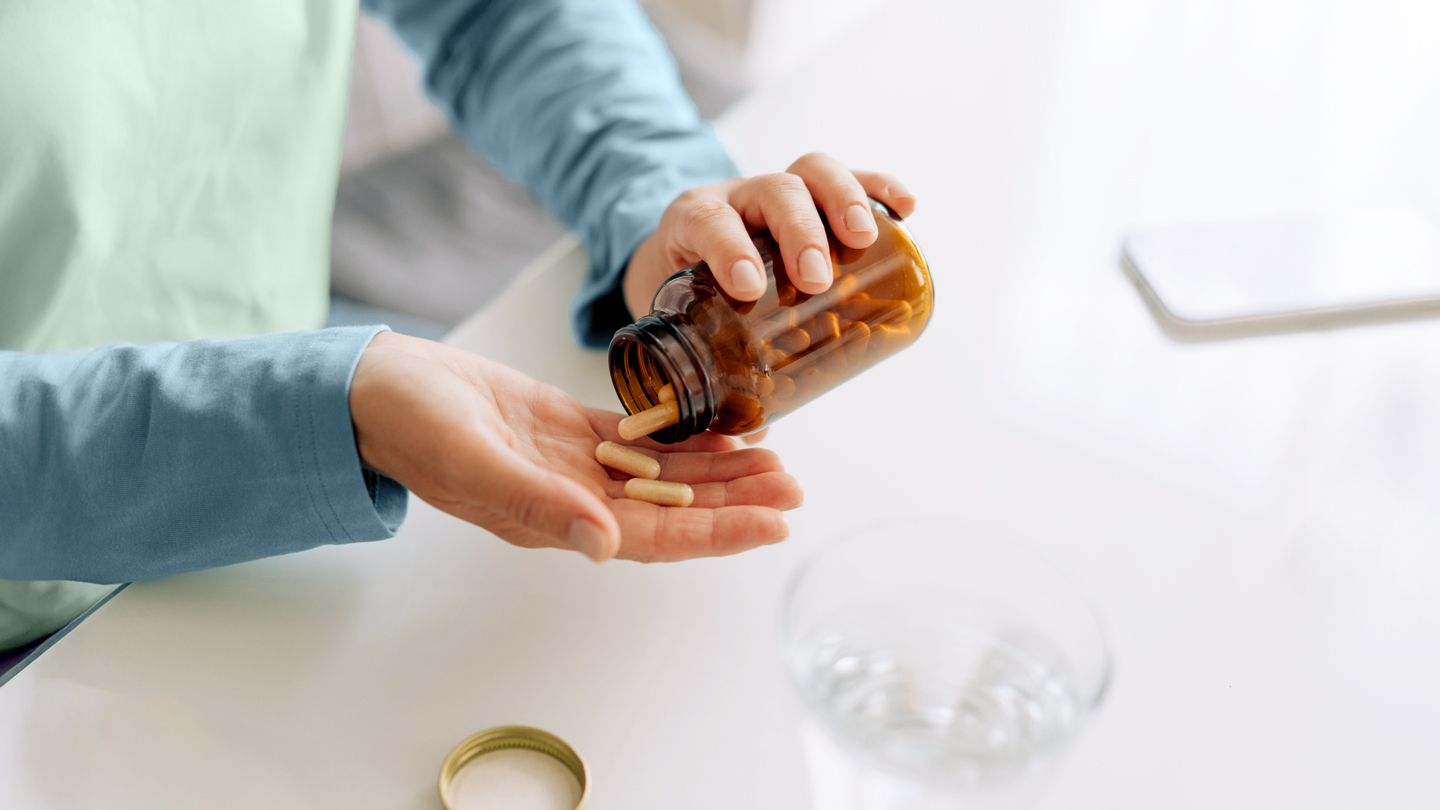Addressing the cause of the imbalance is the best way to balance your hormones. “The key is individualized care. Each woman is different. There is no one-size-fits-all approach,” says Hanna. Once you know the cause, your doctor may recommend medications, lifestyle changes, or supplements.
“Depending on the type of imbalance, we often use targeted medications,” says Del Toro Badessa. For example, if hormones like estrogen and progesterone sink too low — which happens naturally during perimenopause — hormone replacement therapy can raise levels and ease symptoms.
Compounded bioidentical hormone replacement therapy, however, is not the same as the medications you might receive from your doctor. Compounded medications are produced in specialty pharmacies and are not subject to the same quality control or safety and dosing regulations. Therefore, compounded bioidentical hormones are not an appropriate or safe option.
Always consult your doctor before starting any medications, and only take those that are prescribed by your doctor.
Can You Balance Hormones Naturally?
Medications aren’t the only solution. You can also try natural techniques to balance your hormones, under the care of a healthcare provider. To start, you can use all the hormone imbalance prevention methods listed above.
Some doctors also recommend vitamin supplements if a patient’s blood work shows a deficiency, says Hanna, but it’s important to speak to your doctor before adding any new supplements and to choose options that have a scientifically proven value.
“I am cautiously supportive of certain herbs that have [some] research behind them,” says Del Toro Badessa, including these:
- Black cohosh may reduce hot flashes.
- Chasteberry (Vitex agnus-castus) may help with premenstrual syndrome and cycle regulation by gently boosting progesterone and lowering prolactin.
- Ashwagandha may lower stress hormones.
However, it’s important to remember that most supplements and herbs you see touted for hormone balance don’t have much research backing them up. “The Menopause Society is very clear — there are no recommended scientifically validated menopause supplements,” says Hanna.
Hanna also cautions against “detox” teas or hormone-balancing powders marketed on social media. “While they may be tasty, they are often expensive and lack scientific data, leaving them unproven,” says Hanna.
“I wish patients knew that balancing hormones starts with a healthy lifestyle. There’s no magic pill for prevention, but your daily habits (nutritious food, exercise, sleep, stress management, and avoiding toxins) have a powerful regulating effect on your hormonal system,” says Del Toro Badessa, who adds that these fundamentals not only help imbalances but also make any necessary treatments (like medications) work better if issues do arise.
Read the full article here




